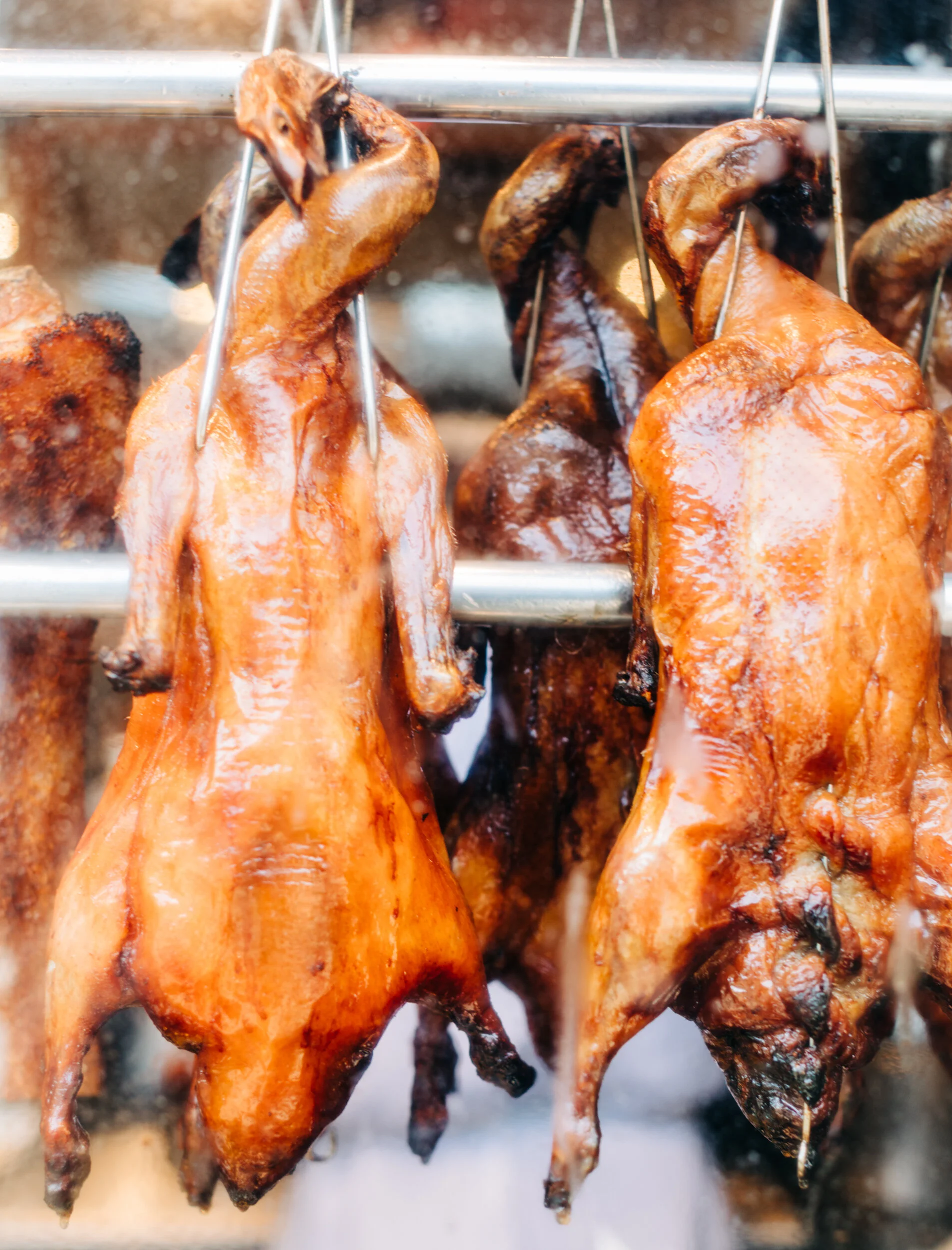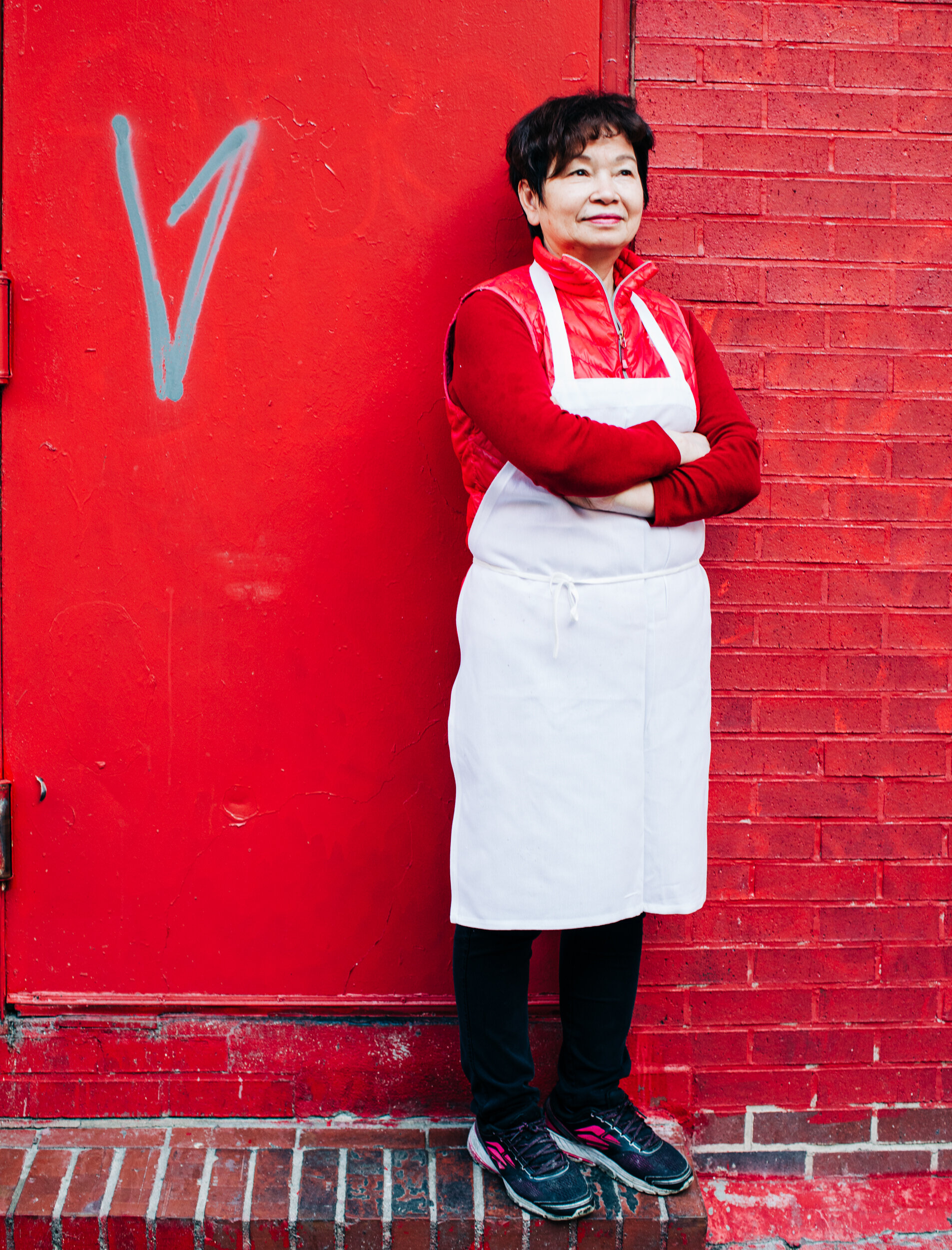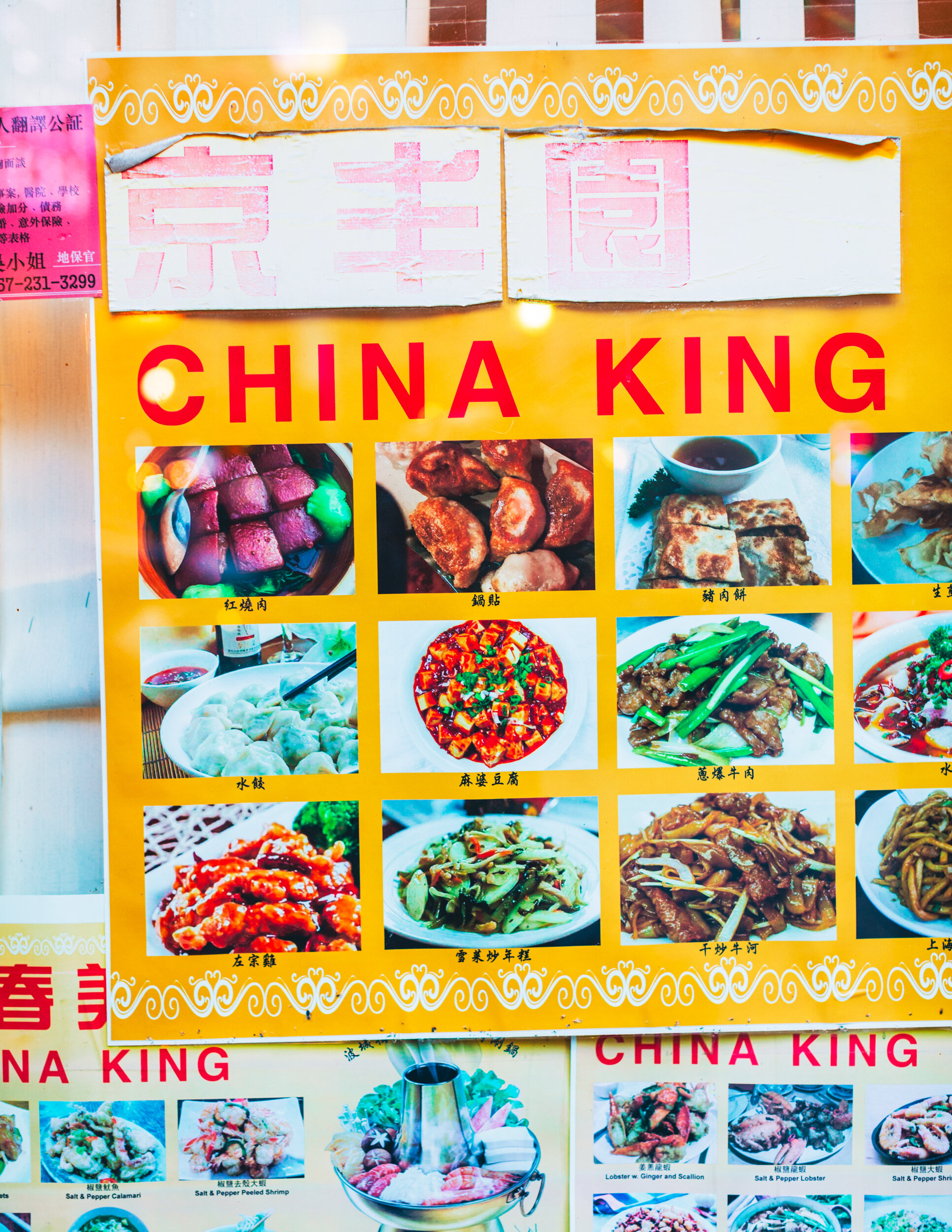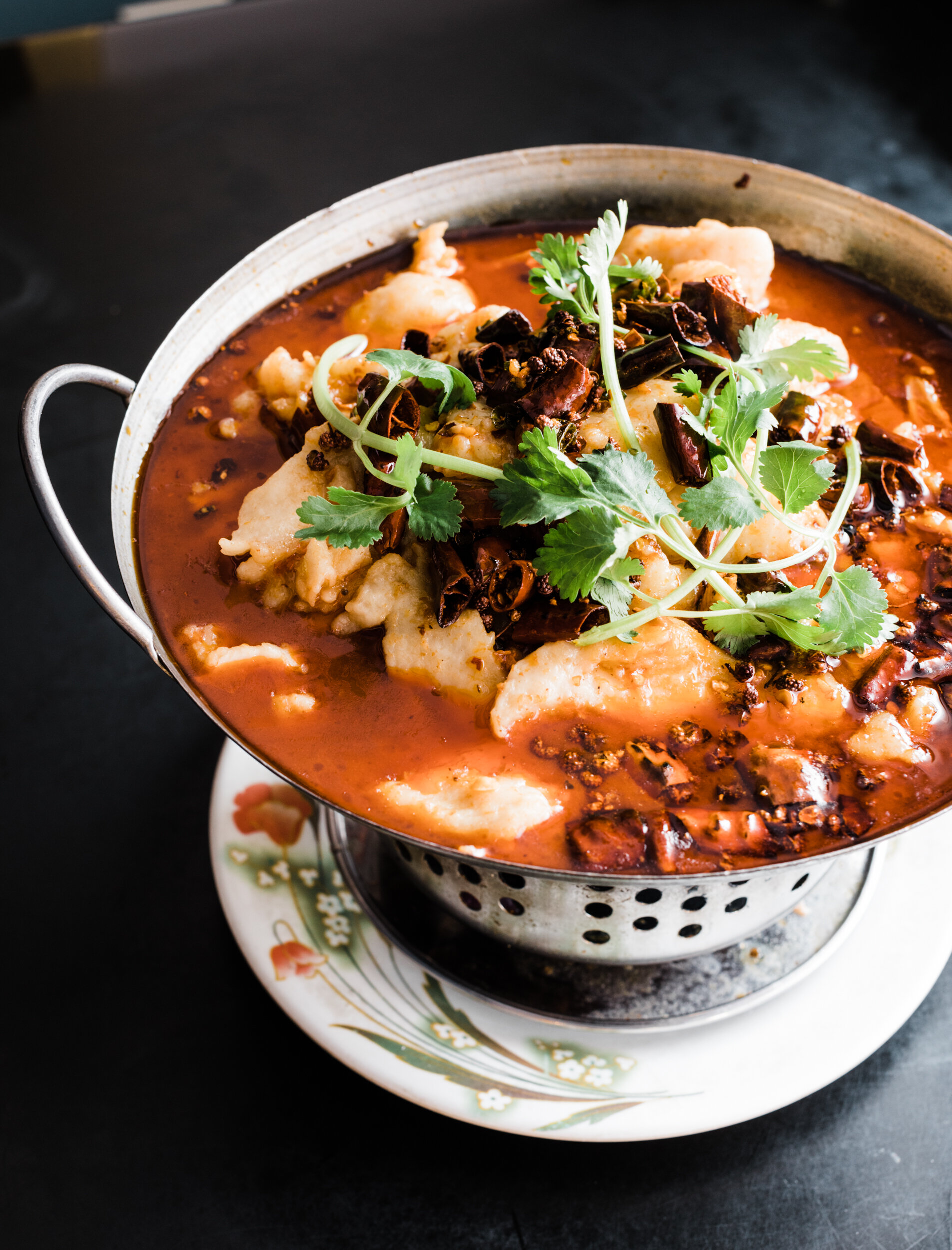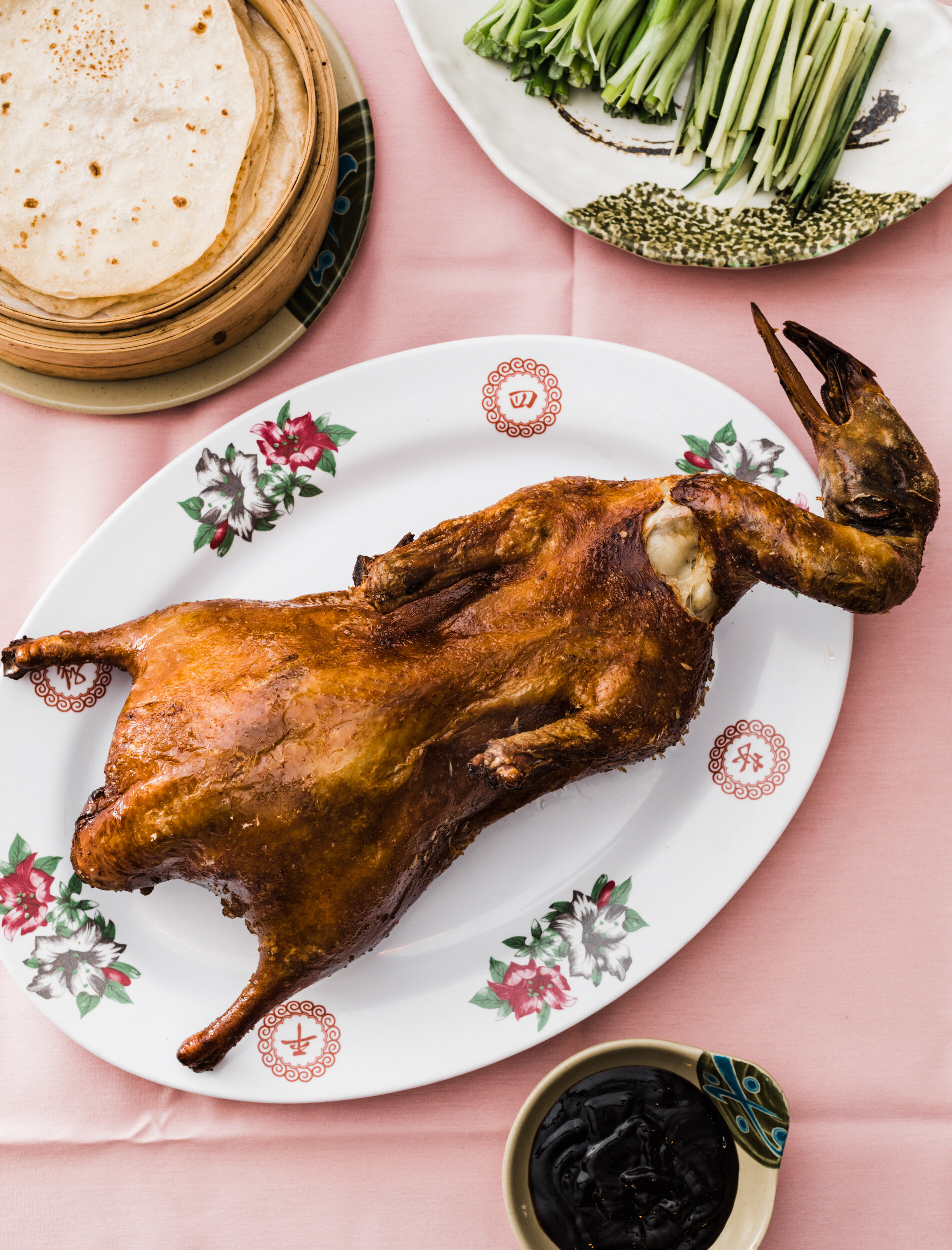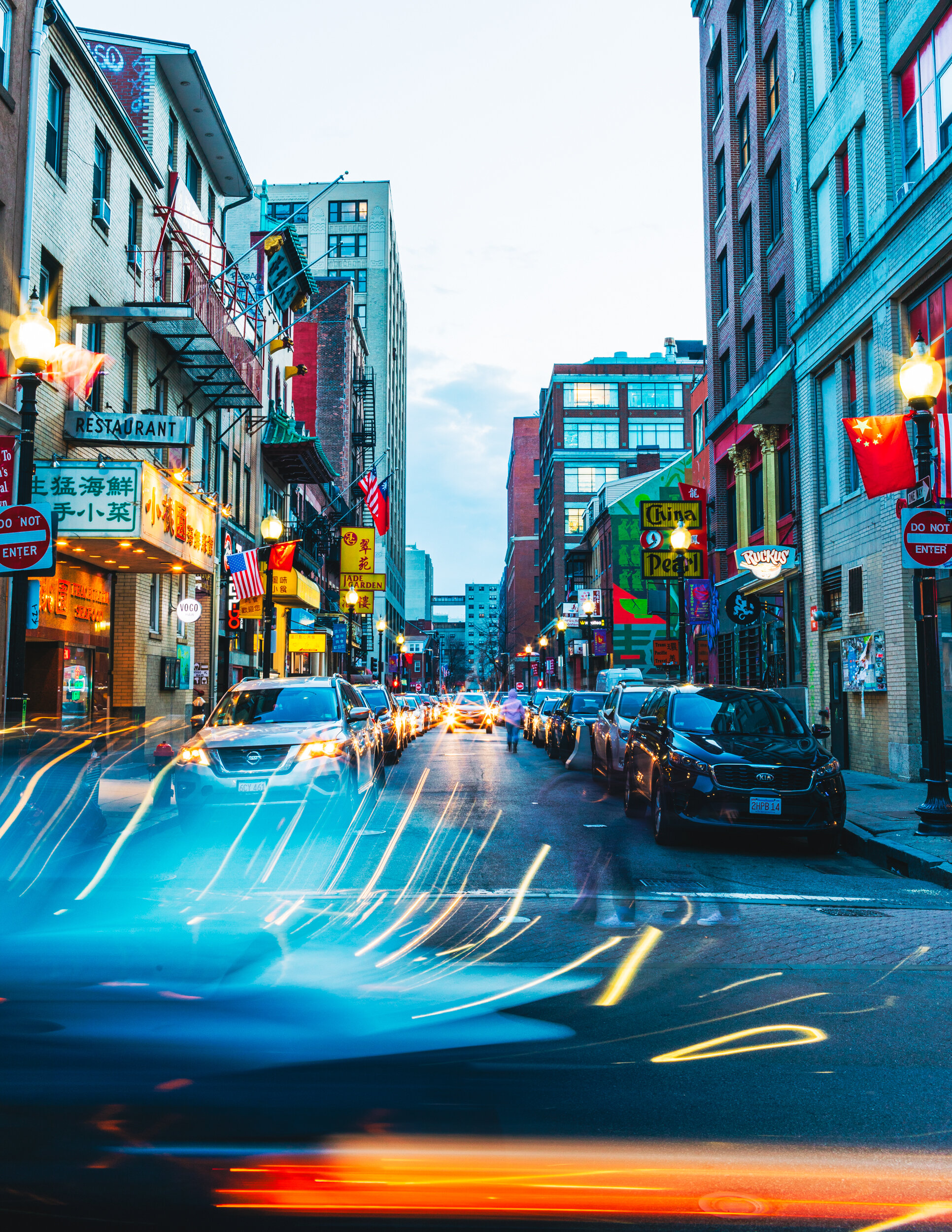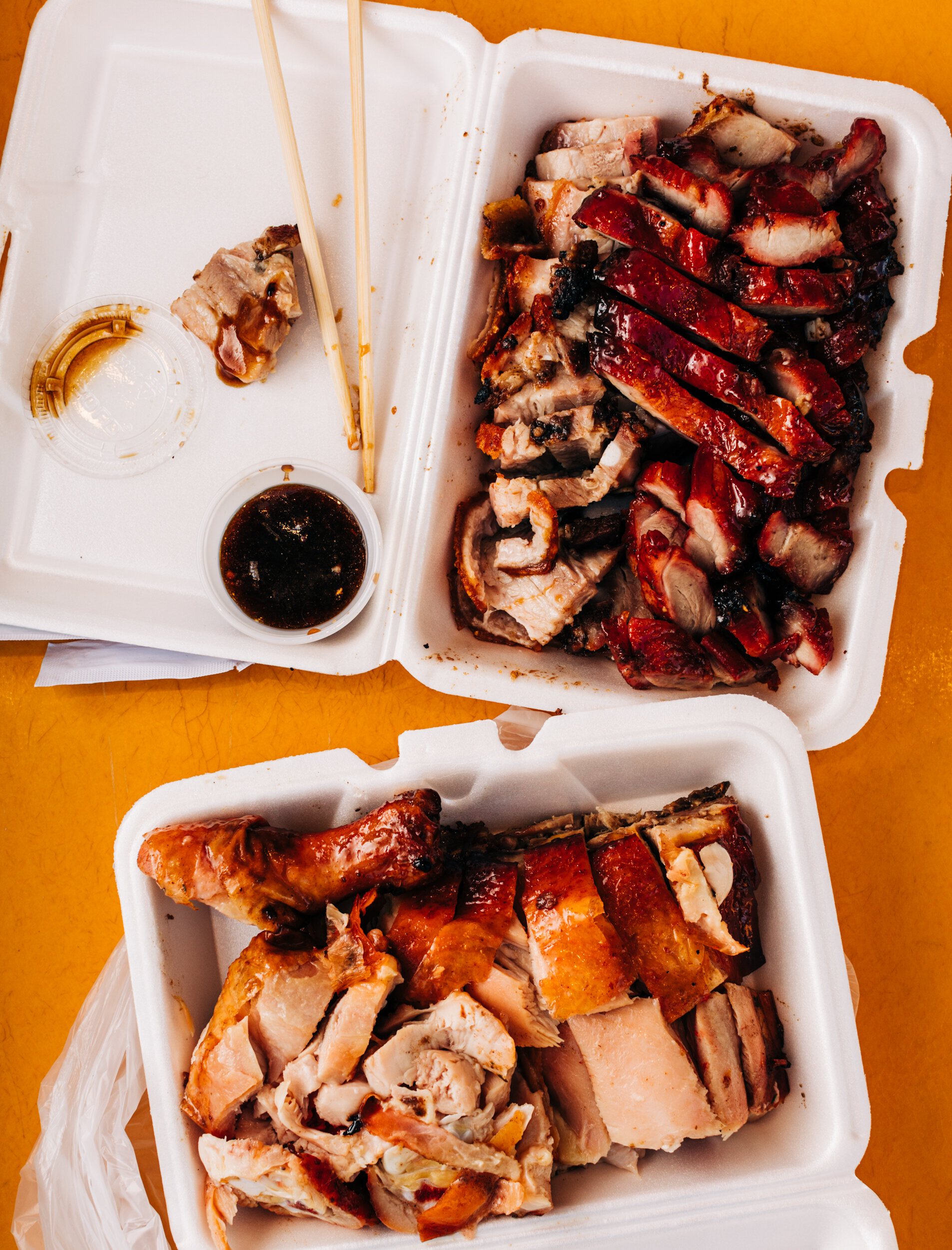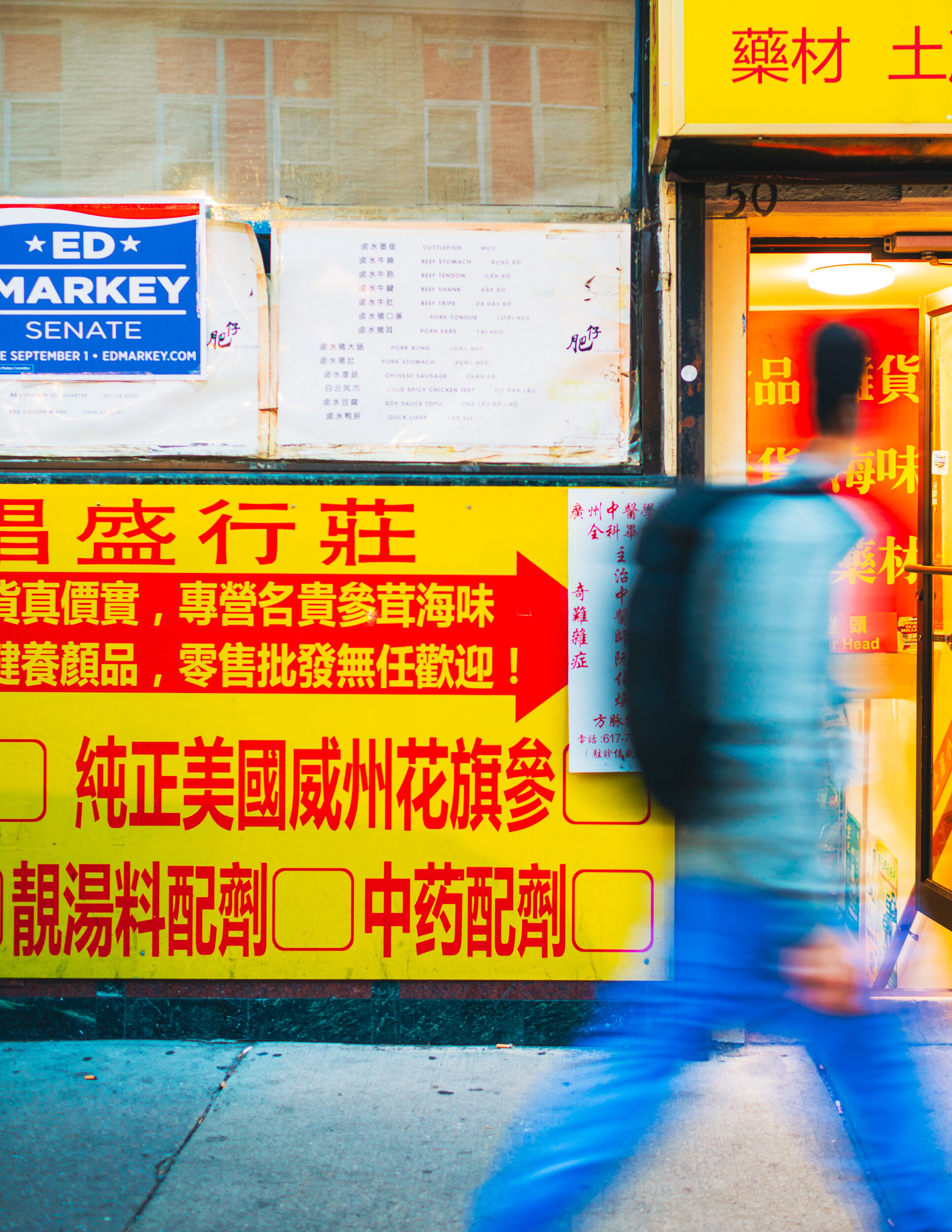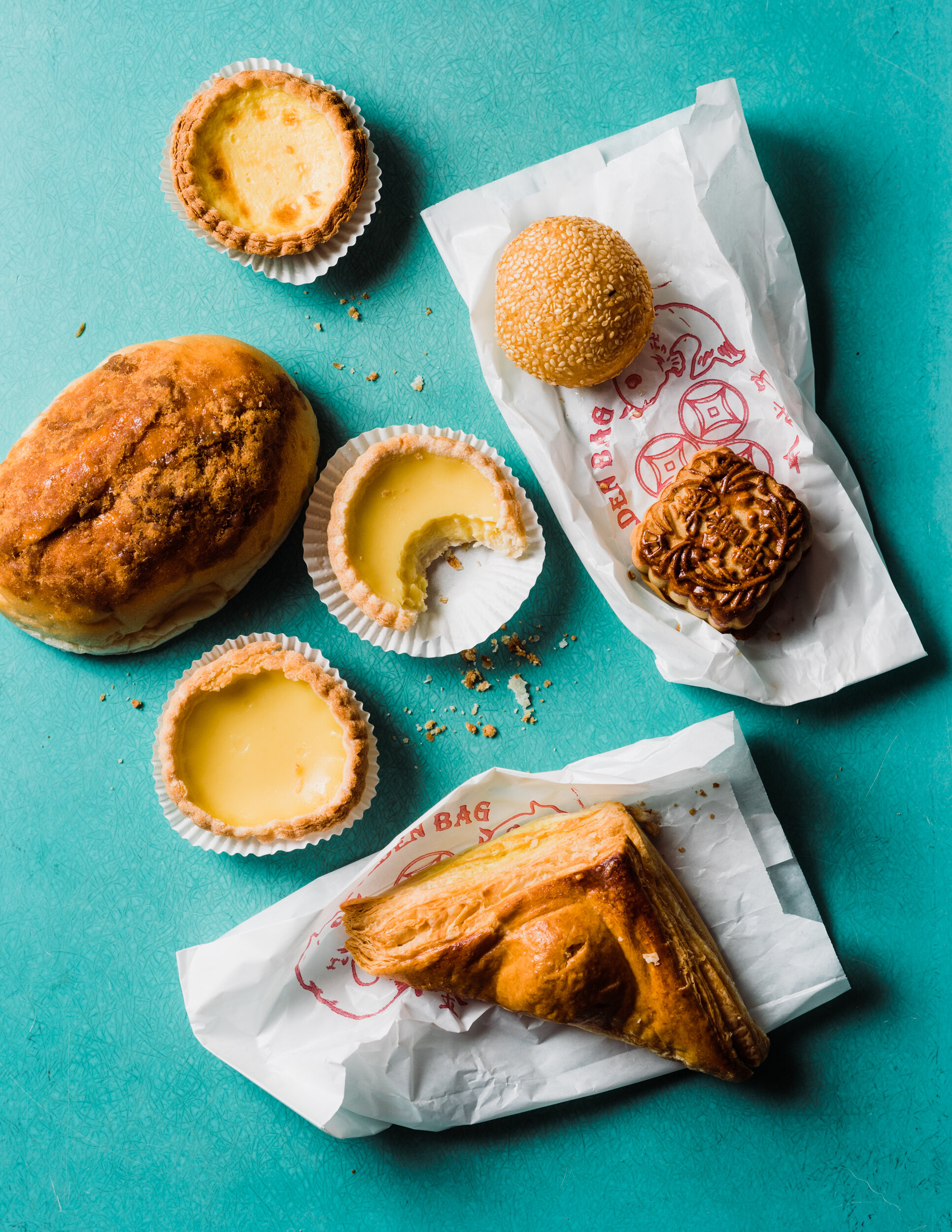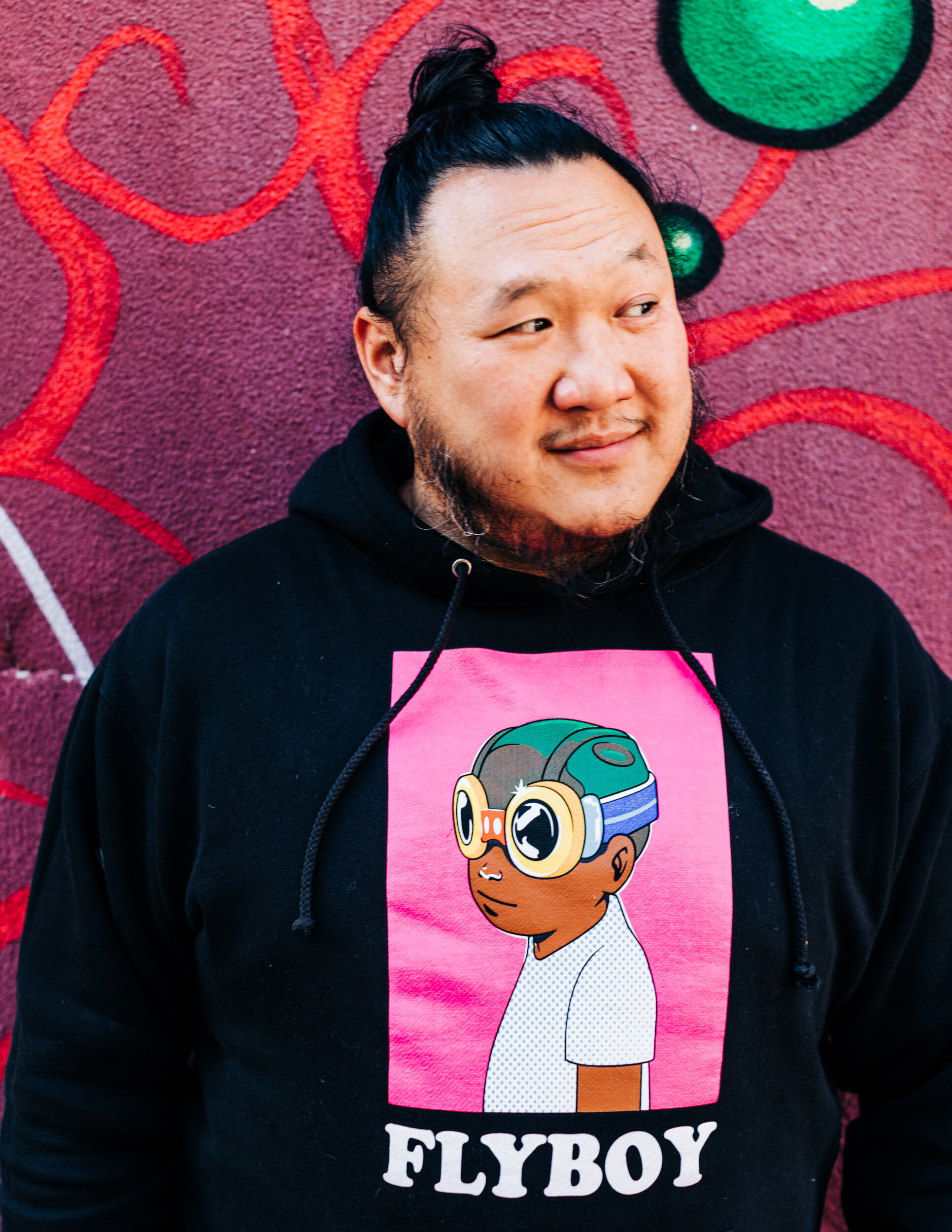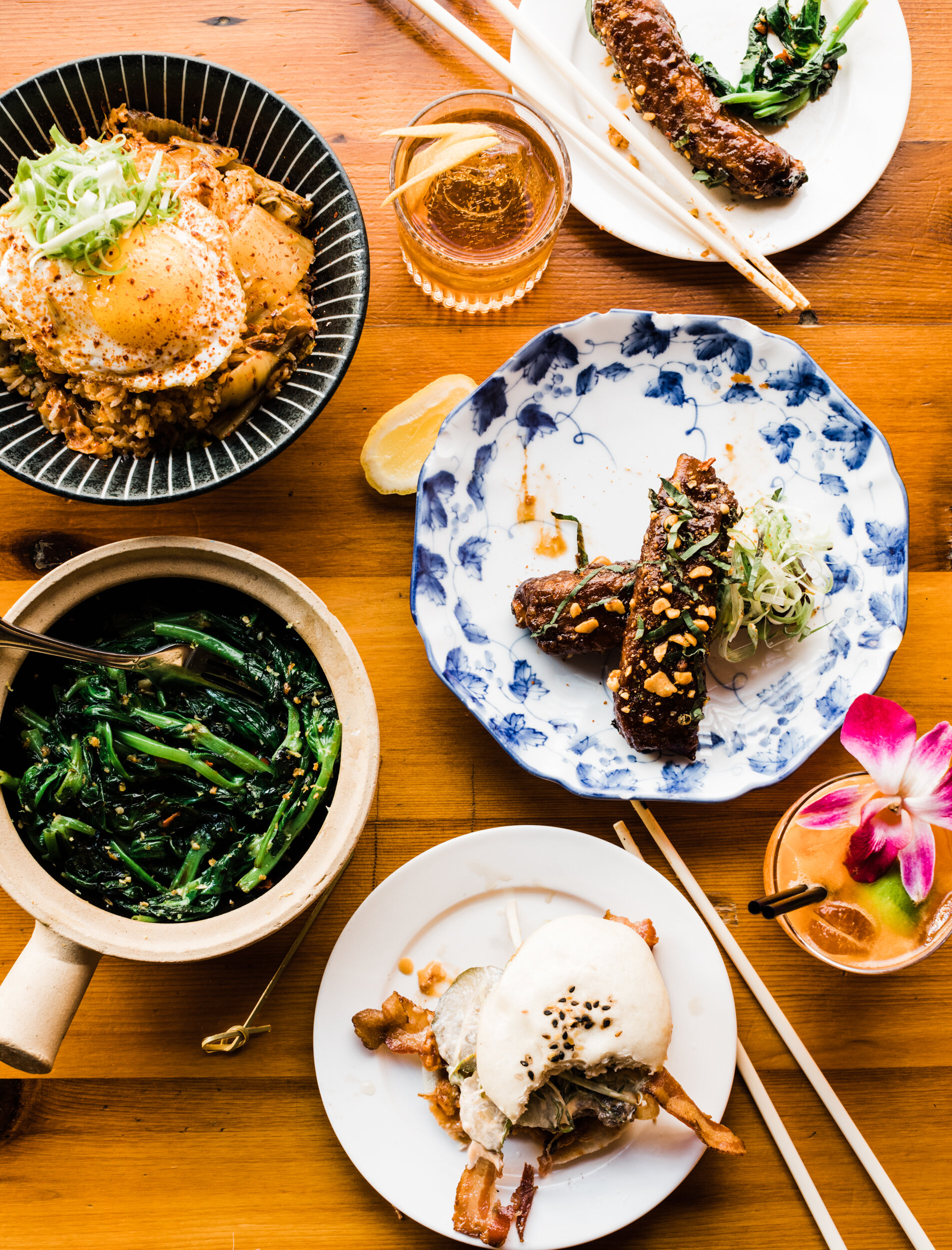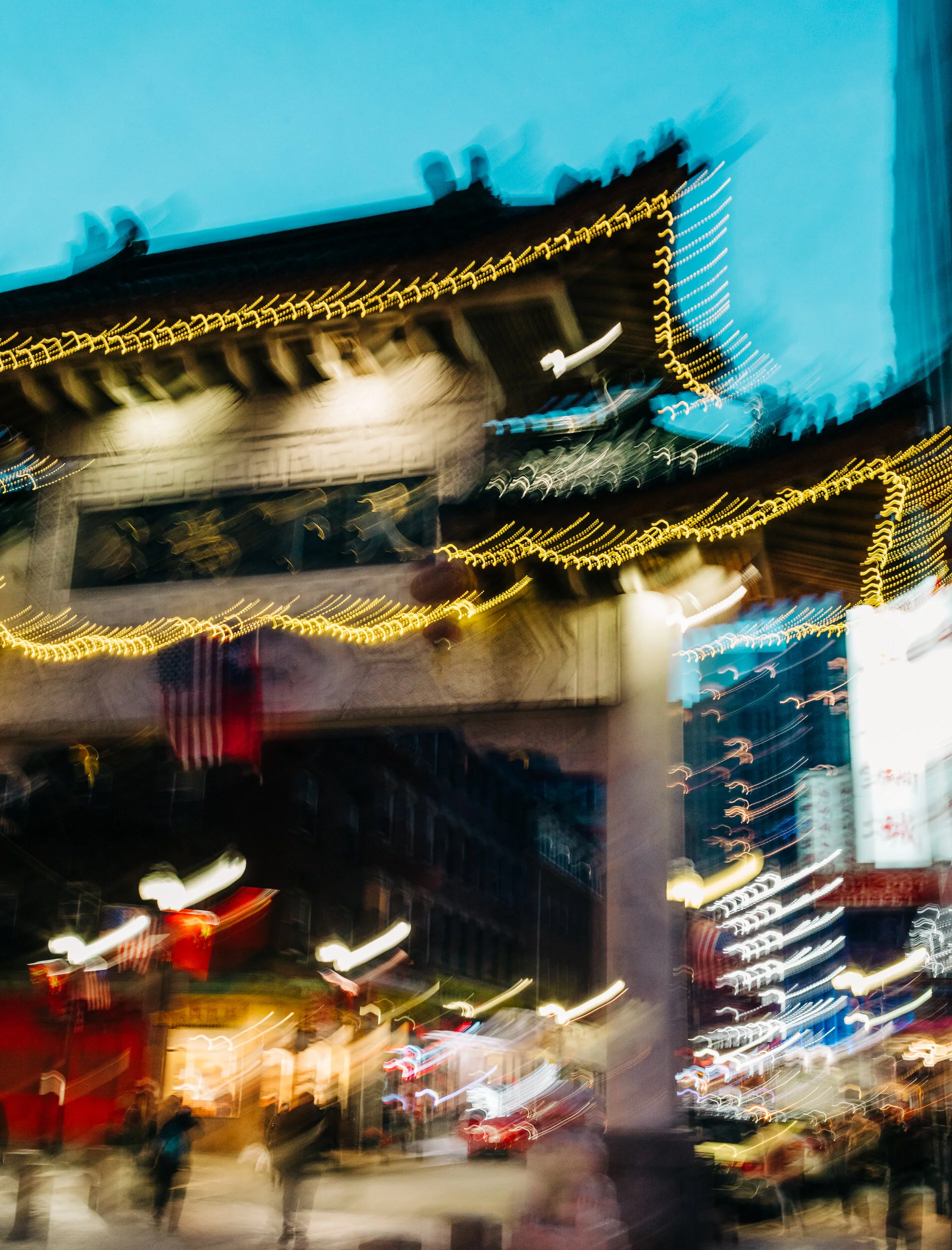Preserving Chinatown: A Neighborhood in the Crosshairs
Hong Kong Eatery
Photos by Michael Piazza
Boston is a city of immigrants. These communities invite us to their tables, telling us who they are through their food. One of Boston’s oldest neighborhoods, Chinatown, has a complex history and delicious food. More than food, it’s the courage and resilience that show us what Boston can be.
The COVID-19 pandemic and the rise of anti-Asian sentiment, coupled with the ferocious demand for real estate in Boston, are challenging this neighborhood like never before. Just what will this food-lovers’ mecca look like on the other side of the current crisis? With roughly 80+ community organizations and 30 or so restaurants, understanding how we might preserve its essence can be tricky, but worth the effort.
[CHINESE PROVERB:
“TO THE RULER, THE PEOPLE ARE HEAVEN;
TO THE PEOPLE, FOOD IS HEAVEN.”]
BORN OF (FAMILIAR) STRUGGLE
This neighborhood, once known as South Cove, was settled by various waves of immigrants (White Anglo-Saxon Protestants, Irish, Jewish, Italian, then Syrian and Lebanese) before the Chinese arrived. In 1870, Chinese laborers, largely unemployed since the completion of the Transcontinental Railroad, were recruited to this area from California to break a strike called by the nascent shoemakers’ union in Western Massachusetts; they moved east to Boston in the years that followed.
Historians mark the railroad construction era as the genesis of “citizens versus aliens” sentiment. Irish labor organizers brandished the threat of “aliens” and “cheap Chinese labor” to increase allegiance to the growing unions. The organizers’ rhetoric contributed to a groundswell of racism and violence culminating in the Chinese Exclusion Act of 1882, marking the first time that the United States enacted race-based immigration exclusion. Lacking the vote, Chinese businessmen turned to the courts; their cases provided precedent essential to contemporary lawsuits challenging Muslim immigration exclusions.
After World War II, the anti-Chinese sentiment began to shift. Eventually the Exclusion Act was repealed, and families were reunited. Blocks of affordable row houses in South Cove created an enclave where kids could safely roam and play. Chinese-owned grocers, herbalists, schools, social clubs and churches flourished. South Cove became a safe haven and a new home to these immigrants. Some began to serve a version of their food to a growing number of curious outsiders and local workers. Though the family back in Guangdong or Toisan would not have recognized what the chop suey houses served, Chinatown, as we know it, was born.
Doris Huang, owner of China King
Post-war highway construction, hospital expansion and the city’s decision to consolidate the red-light district here spurred new civic activism, much of it led by women. Affordable housing topped their list of concerns then as now. Today, tall luxury towers frame a smaller, more diverse Chinatown. Larger banquet houses exist next to tiny mom-and-pop joints. Locals and tourists alike flock to Chinatown to enjoy hot pot, soup dumplings, ramen and the super-Instagrammable boba. Boston turns out for lunar calendar holidays including colorful lion dance parades accompanied by a deafening cacophony of drums and cymbals.
SLEEPING LIONS, SILENT CYMBALS
Western restaurants rely on a robust period from fall through New Year’s. Office parties and fundraisers build revenue to carry into the new calendar year. For Chinese restaurants, this make-or-break season occupies a couple weeks during the Lunar New Year holiday. In 2020, this important holiday fell on January 25. Each year, Chinese people the world over travel to family reunions and feasts; coinciding with school holidays and increasing Chinese affluence, this holiday period is responsible for the largest short-term human migration worldwide.
Last winter, sumptuous, boisterous, multigenerational feasts should have filled Chinatown, but 2020’s Lunar New Year was eerily subdued. Residents had already begun to hear news from China about a virus. Business owners’ concerns grew. When the outbreak in Wuhan made headlines, the fear of mask-wearing Chinese was evident in numerous racial attacks and near-empty streets. Later in the year, the August Moon and Mid-Autumn Festivals—also typically multi-day celebrations of abundance—saw largely empty or closed restaurants.
By February, echoes of historic anti-Asian sentiments grew louder, as restaurants grew quieter. Workers lost hours. Others lost jobs. Chinatown became a ghost town, as if the mythical man-eating Nian monster had actually come to life and ravaged it. Boston City Councilor (now mayoral candidate) Michelle Wu “heard from Chinatown restaurants that their business had dropped by 70%, even 80%.” In mid-February, she called a massive dim sum rally hosted by China Pearl. People came out to eat together, share stories, reconnect. Business and community leaders urged calm, pleading for support of the Chinatown restaurant and business community.
Residents suffered racist and xenophobic rhetoric from the very outset of this pandemic. Businesses began to board up. Boston City Councilor Ed Flynn, whose staff includes three tri-lingual Chinese immigrants, notes that at an early pandemic community meeting “a young Asian woman shared how she boarded a train only to have all the other passengers move away from her.” He adds, “This neighborhood, community, its veterans, their incredible contributions and sacrifices, still are not treated with the respect it deserves. We have a long history of anti-Chinese racism in our country. Without my dedicated staff, these voices would not be heard at City Hall.”
As the pandemic worsened, restrictions made large gatherings and restaurant dining impossible. Restaurants continued to struggle. Some converted to takeout only, but for the larger banquet-style restaurants dependent on events and full dining rooms, this is not a viable future. Outdoor dining, a challenge in any neighborhood, is nearly impossible in the cramped streets of Chinatown. Some small restaurant owners have survived by letting their chef and staff go and taking over the cooking themselves. Debbie Ho, executive director of Chinatown Main Street, “talked to one restaurant owner who is paying her staff, her landlord, but has been unable to pay herself. This is untenable, certainly for months on end.” Most restaurants operate on narrow margins; in Chinatown, they are razor-thin.
For small family-owned restaurants 90–95 cents of every dollar made goes back into the community. Jody Adams, chef, co-owner of Trade, Porto, Saloniki and founding member of MA Restaurants United, notes that when restaurants close, “we lose more than just the restaurant, we lose the place where people go to make plans, we lose communities, gathering places, places people hold church fundraisers.” Chinatown’s access to this advocacy effort has been hampered by language and cultural barriers. Adds Brian Moy, owner of Shojo, Ruckus Ramen and second generation of the family-owned Chinatown grande dame, China Pearl, “Two holidays which have grown over the years are Thanksgiving and Christmas. We’d see families in Chinatown; some would stop for pastries, kids for bubble tea, and restaurants would see reservations before, during and after. At China Pearl, a significant part of our business is weddings. We’ve lost two wedding seasons on top of all these holidays.”
CHINATOWN IN THE CROSSHAIRS
With easy highway access and proximity to the Financial District, Chinatown has become a target for hungry developers. The community has been disrupted. And sadly, Chinatown has begun to prey on its own: Landlords raise rents or terminate leases sometimes abruptly, as the profits of Airbnb beckon. After legislation to curb this displacement was implemented (many say too late), a loophole for short-term executive-stay rentals now undermines housing stability.
Lydia Lowe, executive director of Chinatown Community Land Trust (CLT), notes “During the pandemic the only businesses that survive are the ones that serve residents. Chinatown’s survival is at stake. Residents historically didn’t have enough of a voice. While many of the business owners live outside of Chinatown, they’re still invested in what’s here.” CLT’s protection of the historic row houses on Oak Street is one promising development. Soon its first affordable condo units there will be on the market.
Debbie Ho wants economic help in the form of grants—administered closely—to help restaurants implement upgrades and modifications, while acknowledging it may be impossible for smaller restaurants to do so. Ho was raised upstairs from the Ho Yuen bakery and understands business owners’ fears and frustrations, noting the recent statewide phone alarm about the rising COVID numbers “scared the ____ out of people and one restaurant owner said his business literally stopped after that. People are scared.”
Many resource meetings were held in English only, limiting access to what little help is available. In response, Ho and her staff developed packets in Chinese and English and walked them to each restaurant.
Asian Community Development Corporation continues to develop more affordable housing, like the 51 units at 88 Hudson Street, but the supply will never meet the need. Boston has no rent control and little apparent appetite to balance the concerns of big developers versus neighborhoods.
[CHINESE PROVERB:
“ALL THE PAST DIED YESTERDAY;
THE FUTURE IS BORN TODAY.”]
Chinatown’s very existence is at stake. Many restaurants will not survive another Lunar New Year with empty tables. Will Chinatown (now only 48% Chinese) become nothing more than a pretty gate overlooking boarded-up shops? The recent wave of xenophobic rhetoric has been met by some new alliances between Chinese and Black Lives Matter advocates. Boston’s newest City Council reflects its citizens more than ever before.
Community leaders offer ideas to light the way forward. A Cultural District designation might focus state tourism and economic development resources on this community. Flynn underscored the “necessity of working with tourism and hotel industries to preserve Chinatown.”
Stephanie Fan, longtime board member of the Chinese Historical Society of New England, reminds us that “sometimes it’s not resources or direct services that make a difference; art and culture make Chinatown attractive. Artifacts that link us to history need to be honored and archived. It’s not only preserving but persevering to give new immigrants a sense of community, a home base.”
An Immigrant History Trail to inspire conversations about Boston’s past trade in enslaved people (see the Phillis Wheatley plaque on the corner of Tyler and Beach Streets) and link us to previous immigrants who once resided here, like Khalil Gibran and Amelia Earhart at the Denison House (Tyler Street) could bring tourists—just as the Freedom Trail does for the North End.
Fair, accessible COVID grants and resources would help to stanch the losses to this business community. Responsible city planning and development to protect and expand affordable housing is front and center in these conversations. There’s much work to do but the community can draw on its historic resilience, find new allies and protect this unique immigrant enclave for all to enjoy.
But first, let’s eat.
[CHINESE PROVERB:
“TALK DOESN’T COOK THE RICE.”]
Jackie Church’s CHINATOWN RESOURCE GUIDE
Takeout or dine-in while we can.
Explore Xi’an food at Gene’s Flatbread.
Try fish fillets with fermented mustard greens hot-pot at Taiwan Cafe.
Everyone knows the xiao long bao (soup dumplings) at Gourmet Dumpling, but have you tried their bamboo with pork?
Craving flavors of Hunan? Try the Bubor Cha Cha incarnation.
Even takeaway offers variety from China King’s Peking Duck to Hong Kong Eatery’s wonton mein.
Bakeries offer everything from fancy (Double Chin, Top Bread) and fun (Pikachu Cake). Check out Great Taste and Eldo Cake House for classic fruit and cream cakes; Ho Yuen Bakery is a favorite for classic mooncakes to more modern top picks like coconut buns.
Looking for a home-schooling family adventure? Try mapping the regional cuisines of China and look for iconic dishes from our restaurants. This project could include geography, history and more.
If you want to support Chinatown business relief funds, here are two:
Chinatown Main Street and the Boston Hurricanes, raising money to help the small businesses in Chinatown.
EDITOR’S NOTE: For another take on how we can support Chinatown and Chinese restaurants across Greater Boston, read our friend Jim Solomon’s op-ed, Unity, By Way of Chinatown, published as an online exclusive in January 2021. Jim offers his own recommendations for exquisite Chinese dishes, plus links to where to find them and his own 30-Day Chinese Journey.

